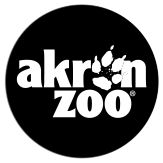Field conservation refers to efforts that contribute to the long-term survival of species in their native habitats.
Through the Akron Zoo’s Wildlife Fund, we support local, regional and global field conservation and research projects that help ensure species survival and provide support for species in their native habitats around the world. You can find a few examples of our global partnerships below.
Fauna & Flora International
Fauna & Flora International (FFI) is the world’s oldest international wildlife conservation organization, founded in 1903. The Akron Zoo provides financial support to FFI which is used to monitor native white-cheeked gibbon populations in Vietnam through the training of rangers and local communities to remove snares and combat poaching.
Red Panda Network
The Red Panda Network (RPN) is the world leader in red panda conservation, helping to provide education, training and support for locals throughout 50% of the red panda’s native range. In 2021, the Akron Zoo helped to support RPN by funding capacity-building training for 28 Forest Guardians. Forest Guardians are people from western Nepal who are paid to monitor and protect red panda habitats, as well as educate communities about red panda conservation.
Red Wolf Coalition
The zoo supports the Red Wolf Coalition, an organization that advocates for the long-term survival of American Red Wolf populations. They work with local communities to educate and foster public involvement in American Red Wolf conservation.
The Akron Zoo is one of more than 40 AZA-accredited zoos that are working to help re-establish the American Red Wolf population. In 2021, the Akron Zoo welcomed critically endangered American Red Wolf pups for the first time in its history. The zoo’s female American Red Wolf gave birth to eight pups, four of whom were designated by the Red Wolf Recovery Plan to be cross-fostered to a den in their native habitat where a native red wolf had recently given birth. These pups, two males and two females, were transported to North Carolina when they were just over a week old, and USFWS officials successfully introduced the pups to the foster den that day. This was the first time since 2014 that American Red Wolf pups were able to be reintroduced into their native habitat. We hope to continue our partnership and protect these endangered canids from extinction.
White-Winged Wood Duck Health Research
The Akron Zoo is a leader in the conservation of the critically endangered white-winged wood duck. We have a long-standing partnership with Hiram College and Sylvan Heights Bird Park, which has allowed us to study populations of white-winged wood ducks and increase the population’s health and sustainability in zoos.
Sylvan Heights is home to a large percentage of the North American population of white-winged wood ducks. This species is threatened by a disease, Mycobacterium avium, which shortens lifespans and decreases breeding success, jeopardizing the sustainability of the population in human care. Akron Zoo staff and Hiram College staff and students collaborate to research the unique susceptibility of the white-winged wood duck to this disease.
Did you know that each time you visit your Akron Zoo, you are helping to support field conservation?
One percent of your admission supports field conservation and research projects that contribute directly to the long-term survival of species around the world. In addition to admissions costs, the zoo raises money for the conservation fund with the help of other fundraisers and donations throughout the year. These funds are donated directly to our partner organizations that work with animals in their native habitats. Each year Akron Zoo is able to support 18-20 field conservation projects.
SPOTD
Spotted turtles are a small, native aquatic turtle species once commonly found in Ohio. Their numbers are in decline all across the Eastern seaboard and the Great Lakes Region. Your Akron Zoo is working hard to help get these turtles back into the wild.
Threats
Illegal removal of adults as pets. These turtles are removed from the wild, sometimes accidentally, when people take one home as a pet and on purpose in the illegal pet trade. This species has a long, slow reproductive cycle and the removal of any adults can do significant damage to the population. The Akron Zoo is working to educate the public about this so they can become advocates for this species.
Invasive plants and habitat degradation. Spotted turtles have specific habitat requirements and are not able to easily adapt to changes in their environment or to habitats they are not used to.
What We Are Doing to Help
The Akron Zoo is working with zoos across the United States through the North American Turtle SAFE (Saving Animals from Extinction) Program. Through this program, zoos are working with government agencies, such as the U.S. Fish and Wildlife Service and ODNR, to rescue turtles from the black market pet trade, assess their health and then release them back into the wild. To do this, we have partnered with a local group of conservation organizations that together create SPOTD.
Goals for the Program Include:
- Locate spotted turtle nests and protect them from predators
- Assess conservation needs for populations of spotted turtles
- Restore spotted turtle habitats where necessary
- Build wild populations back up by breeding captive spotted turtles and releasing the young back into the wild
- Increase education on spotted turtle conservation through public outreach
Groups involved in SPOTD include: Akron Zoo, Cleveland Metroparks, Cuyahoga Valley National Park, EnviroScience, Geauga Park District, Greater Cleveland Aquarium, Gregory Lipps, LLC, Lake Metroparks, USDA - Wildlife Services and Wild4Ever

